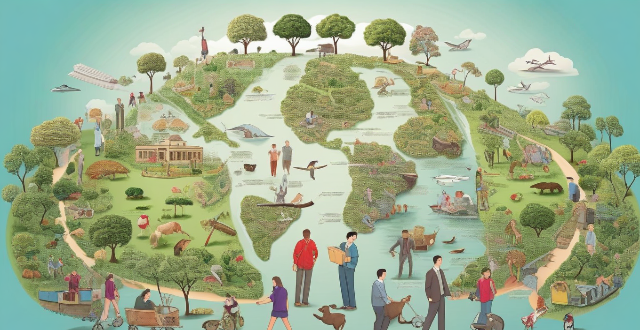Developing countries play a crucial role in the global effort to combat climate change. Their participation in international climate agreements is essential for achieving a sustainable future for all nations. This article discusses how developing countries can engage with these agreements and contribute to global climate action by prioritizing education and awareness, seeking technical assistance, accessing financial and technological support, ensuring inclusivity and representation, building capacity through institutional strengthening and training programs, and engaging in collaboration and partnerships. By addressing these key points, developing countries can play a significant role in shaping global climate policy and contributing to a more sustainable future for our planet.

Participation of Developing Countries in International Climate Agreements
Introduction
Developing countries play a crucial role in the global effort to combat climate change. Their participation in international climate agreements is essential for achieving a sustainable future for all nations. This article will discuss how developing countries can engage with these agreements and contribute to global climate action.
Key Points
1. Access to Information and Resources
- Education and Awareness: Developing countries must prioritize education and awareness campaigns to understand the implications of climate change and the importance of taking action.
- Technical Assistance: These nations often require technical assistance to build their capacity to participate effectively in international climate negotiations.
2. Financial and Technological Support
- Climate Finance: Developing countries need access to financial resources to implement climate policies and adapt to the impacts of climate change.
- Technology Transfer: The transfer of clean technologies from developed countries can help reduce greenhouse gas emissions and promote sustainable development.
3. Inclusivity and Representation
- Negotiation Rights: Ensuring that developing countries have a seat at the table during international climate negotiations is vital for their interests to be represented.
- Fair Representation: It is important to ensure that the voices of developing countries are heard and taken into account when crafting international climate policies.
4. Capacity Building
- Institutional Strengthening: Developing countries should focus on strengthening their institutions to better manage climate change issues.
- Training Programs: Training programs can help build the expertise needed to participate effectively in international climate agreements.
5. Collaboration and Partnerships
- South-South Cooperation: Developing countries can collaborate with each other to share knowledge, experiences, and resources related to climate change.
- North-South Partnerships: Partnerships between developed and developing countries can facilitate technology transfer, financial support, and capacity building efforts.
Conclusion
Participating in international climate agreements is a collective effort that requires the active involvement of all nations, including developing countries. By addressing the key points discussed above, developing countries can play a significant role in shaping global climate policy and contributing to a more sustainable future for our planet.